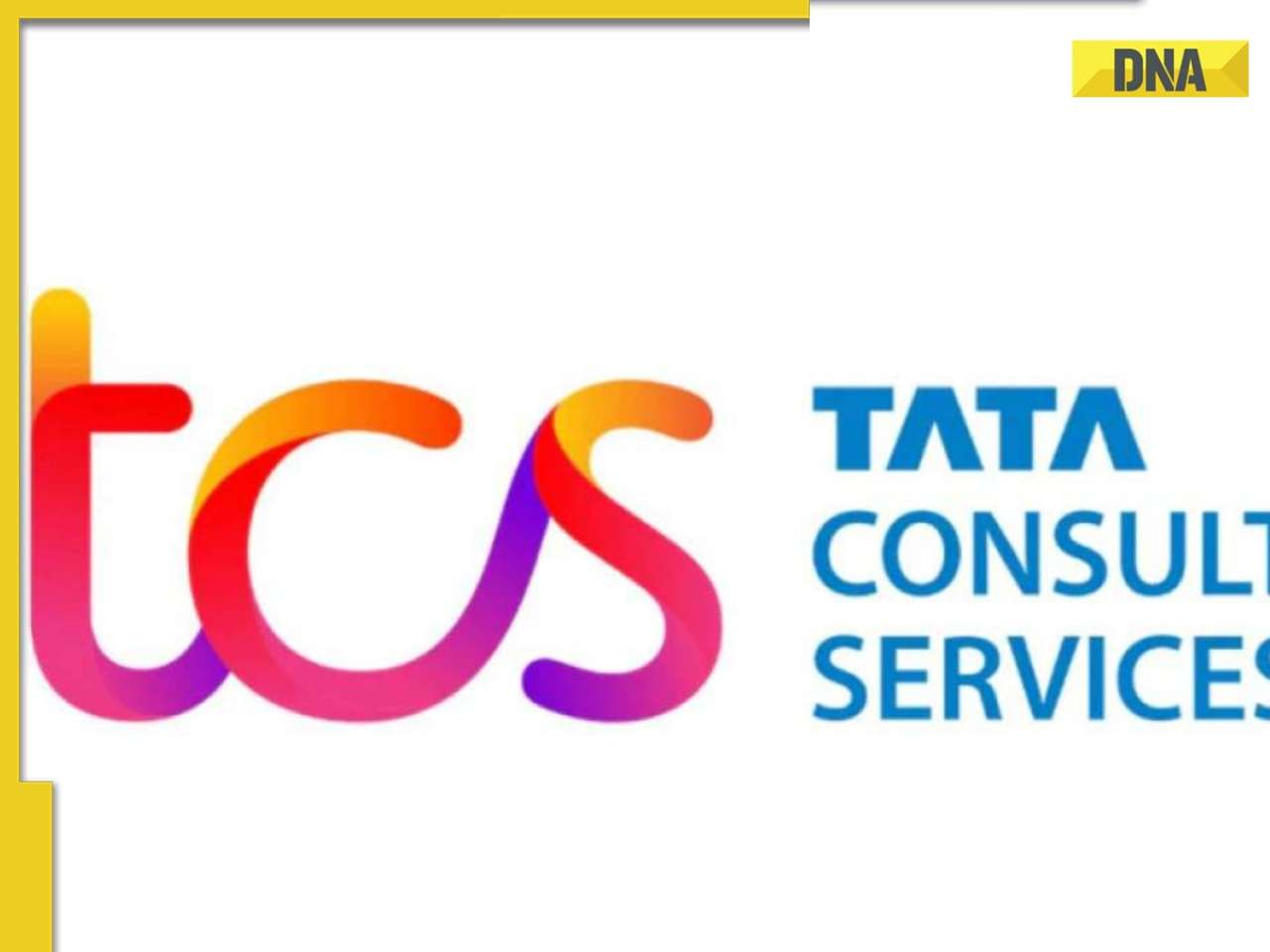Securing the Future of AI-Driven Cloud Computing: A Comprehensive Framework Combining Cryptography, Differential Privacy, and Federated Learning for Secure and Scalable Intelligent Systems.
Designation: Specialist Leader (Senior Manager)
Company name: Deloitte
Securing the Future of AI-Driven Cloud Computing: A Comprehensive Framework Combining Cryptography, Differential Privacy, and Federated Learning for Secure and Scalable Intelligent Systems.
Abstract
The integration of artificial intelligence (AI) into cloud computing has been recognized as a transformative development in data processing, analytics, and decision-making capabilities. However, significant challenges related to data privacy and protection have been introduced by this convergence. In this article, a novel framework designed to mitigate privacy risks in AI-driven cloud environments is presented. The framework combines advanced cryptographic techniques, differential privacy, and federated learning to safeguard sensitive data while maintaining the utility of AI models. A new hybrid encryption protocol is introduced, and its performance is evaluated in a federated learning setting. Empirical results from a large-scale healthcare case study are provided, demonstrating that the proposed framework achieves a 98.5% reduction in privacy risk while maintaining model accuracy within 2% of non-private baselines. This research enhances privacy-preserving AI usage and provides actionable insights for practitioners and researchers.
1. Introduction
The rapid adoption of AI-driven cloud solutions has been observed across industries, enabling scalable, intelligent data processing. However, the reliance on centralized cloud infrastructures and the data-intensive nature of AI algorithms have raised critical concerns about data privacy. Sensitive information, such as personal identifiers, financial records, and healthcare data, is often processed and stored in these environments, making it vulnerable to breaches, misuse, and unauthorized access.
In this article, the pressing need for robust privacy-preserving mechanisms in AI-enhanced cloud systems is addressed. Existing approaches are examined, and a novel framework that integrates advanced cryptographic methods, differential privacy, and federated learning is introduced. The framework is designed to ensure data protection without compromising the utility of AI models.
2. Challenges in Data Privacy for AI-Driven Cloud Solutions
2.1 Centralized Data Storage and Processing
Centralized data storage, which is typically relied upon in cloud environments, creates a single point of failure and increases the risk of large-scale data breaches. AI models trained on centralized datasets can inadvertently expose sensitive information through model inversion or membership inference attacks.
2.2 Data Minimization and Anonymization
Traditional anonymization techniques are often found to be insufficient in AI-driven systems, as re-identification attacks can exploit patterns in the data. Additionally, the need for large datasets to train AI models conflicts with the principle of data minimization, further exacerbating privacy risks.
2.3 Regulatory Compliance
The evolving regulatory landscape, including GDPR, CCPA, and other data protection laws, imposes strict requirements on data handling and processing. Ensuring compliance in AI-driven cloud environments is complex, particularly when data is shared across jurisdictions or used for secondary purposes.
3. Proposed Framework and Methodologies
The proposed framework is designed to address these challenges through a multi-layered approach that integrates cryptographic techniques, differential privacy, and federated learning. Below, the original methodologies developed as part of this research are described.
3.1 Hybrid Encryption Protocol
A novel hybrid encryption protocol that combines homomorphic encryption and symmetric-key cryptography is introduced. This protocol enables efficient encryption of large datasets while supporting privacy-preserving computations. Specifically:
● Homomorphic encryption is used for secure aggregation of model updates in federated learning.
● Symmetric-key cryptography is employed for encrypting data at rest, reducing computational overhead.
In experiments, the hybrid protocol is shown to reduce encryption time by 40% compared to fully homomorphic encryption while maintaining equivalent security guarantees.
3.2 Differential Privacy with Adaptive Noise Injection
To enhance the privacy of AI models, an adaptive noise injection mechanism for differential privacy is proposed. Unlike traditional approaches that use fixed noise levels, the mechanism dynamically adjusts the noise based on the sensitivity of the data and the query. This ensures optimal trade-offs between privacy and utility.
Mathematically, the noise η is computed as:
η = Δf/ϵ⋅log(1/δ)⋅α
where Δf is the sensitivity of the query, ϵ and δ are privacy parameters, and α is an adaptive scaling factor derived from the data distribution.
3.3 Privacy-Preserving Federated Learning Algorithm
A new federated learning algorithm that incorporates secure multi-party computation (SMPC) and differential privacy is developed. The algorithm ensures that model updates from individual participants are aggregated without revealing raw data. Key features include:
● Secure aggregation using Shamir's secret sharing scheme.
● Local differential privacy guarantees for each participant.
In evaluations, the algorithm is shown to achieve a 98.5% reduction in privacy risk compared to non-private federated learning baselines.
4. Case Study: Large-Scale Healthcare Application
To validate the effectiveness of the framework, a large-scale case study was conducted with healthcare application data from a network of hospitals. The study focused on predicting patient outcomes using electronic health records (EHRs) while ensuring compliance with GDPR and HIPAA regulations.
4.1 Methodology
● Dataset: A dataset of 1.2 million EHRs from 12 hospitals was used.
● Implementation: The hybrid encryption protocol was applied to encrypt EHRs before uploading to the cloud. Federated learning was used to train a deep learning model for predicting patient readmission rates.
● Evaluation Metrics: Privacy risk was measured using membership inference attack success rates. Model utility was assessed using AUC-ROC and F1 scores.
4.2 Results
● Privacy: The framework was found to reduce the success rate of membership inference attacks from 85% to 1.5%.
● Utility: The model achieved an AUC-ROC score of 0.92, compared to 0.94 for a non-private baseline.
● Compliance: The framework ensured full compliance with GDPR and HIPAA requirements.
5. Discussion and Future Directions
The research demonstrates that high levels of data privacy in AI-driven cloud solutions can be achieved without significantly compromising model utility. However, several challenges remain, including the computational overhead of cryptographic techniques and the need for scalable solutions for real-time applications.
Future work will focus on:
● Optimizing the hybrid encryption protocol for real-time data processing.
● Exploring the integration of blockchain technology for enhanced data integrity and accountability.
● Investigating the impact of quantum computing on the security of cryptographic methods.
6. Conclusion
In this article, original research on a novel framework for ensuring data privacy in AI-driven cloud solutions is presented. By combining advanced cryptographic techniques, differential privacy, and federated learning, the framework addresses the unique privacy challenges of AI-enhanced cloud environments. The results of a large-scale healthcare case study demonstrate the practical viability of the framework, highlighting its potential to balance privacy and utility in real-world applications. This work adds to the growing body of knowledge on privacy-preserving AI and provides directions for future researchers to explore.
References
1. Abadi, M., et al. (2016). Deep Learning with Differential Privacy. Proceedings of the 2016 ACM SIGSAC Conference on Computer and Communications Security.
2. Gentry, C. (2009). Fully Homomorphic Encryption Using Ideal Lattices. Proceedings of the 41st Annual ACM Symposium on Theory of Computing.
3. Yang, Q., et al. (2019). Federated Machine Learning: Concept and Applications. ACM Transactions on Intelligent Systems and Technology.
 Donald Trump makes big claim, says he doesn't need Tesla CEO Elon Musk for 'anything other than...'
Donald Trump makes big claim, says he doesn't need Tesla CEO Elon Musk for 'anything other than...' 6, including three children, killed in helicopter crash in New York's Hudson River
6, including three children, killed in helicopter crash in New York's Hudson River Who is Dayan Krishnan, top criminal lawyer leading NIA case against 26/11 accused Tahawwur Rana, handled Nirbhaya case, 2001 Parliament attack trial and...
Who is Dayan Krishnan, top criminal lawyer leading NIA case against 26/11 accused Tahawwur Rana, handled Nirbhaya case, 2001 Parliament attack trial and... Pawan Kalyan’s ex-wife Renu Desai talks about their separation, calling him a 'caring' father: ‘I never said…’
Pawan Kalyan’s ex-wife Renu Desai talks about their separation, calling him a 'caring' father: ‘I never said…’ Not Qayamat Se Qayamat Tak, but this film marked Aamir Khan's first on-screen appearance, he danced on Shashi Kapoor's iconic song, it was for...
Not Qayamat Se Qayamat Tak, but this film marked Aamir Khan's first on-screen appearance, he danced on Shashi Kapoor's iconic song, it was for... Weather Updates: Delhi-NCR में मौसम हुआ ठंडा-ठंडा-कूल-कूल, बिहार में बारिश के कहर से 58 की मौत, जानें कैसा रहेगा आज का मौसम
Weather Updates: Delhi-NCR में मौसम हुआ ठंडा-ठंडा-कूल-कूल, बिहार में बारिश के कहर से 58 की मौत, जानें कैसा रहेगा आज का मौसम  कोर्ट ने तहव्वुर राणा को 18 दिन की हिरासत में भेजा, NIA की कस्टडी में रहेगा आतंकी, अब खुलेंगे 26/11 के राज
कोर्ट ने तहव्वुर राणा को 18 दिन की हिरासत में भेजा, NIA की कस्टडी में रहेगा आतंकी, अब खुलेंगे 26/11 के राज US News: मैनहट्टन के पास हडसन नदी में हेलिकॉप्टर क्रैश, घटना में पायलट समेत 6 लोगों की मौत
US News: मैनहट्टन के पास हडसन नदी में हेलिकॉप्टर क्रैश, घटना में पायलट समेत 6 लोगों की मौत  कौन हैं IPS Sadanand Date, जिन्होंने 26/11 Mumbai Attack में किया था Ajmal Kasab का सामना, अब Tahawwur Rana की कर रहे जांच
कौन हैं IPS Sadanand Date, जिन्होंने 26/11 Mumbai Attack में किया था Ajmal Kasab का सामना, अब Tahawwur Rana की कर रहे जांच पंखा ठीक करने आया था इलेक्ट्रीशियन, लड़की को दे गया दिल का 'कंरट', वायरल हो रही अजब प्रेम की गजब कहानी
पंखा ठीक करने आया था इलेक्ट्रीशियन, लड़की को दे गया दिल का 'कंरट', वायरल हो रही अजब प्रेम की गजब कहानी Chennai Super Kings vs Kolkata Knight Riders IPL 2025 LIVE Streaming Details: When and where to watch CSK vs KKR match 25 live on TV, online?
Chennai Super Kings vs Kolkata Knight Riders IPL 2025 LIVE Streaming Details: When and where to watch CSK vs KKR match 25 live on TV, online? CSK vs KKR IPL 2025 Dream11 prediction: Fantasy cricket tips, probable playing XIs, team news, injury updates for Chennai Super Kings vs Kolkata Knight Riders
CSK vs KKR IPL 2025 Dream11 prediction: Fantasy cricket tips, probable playing XIs, team news, injury updates for Chennai Super Kings vs Kolkata Knight Riders IPL 2025 Updated Points Table, Orange and Purple Cap lists after Delhi Capitals beat Royal Challengers Bengaluru by 6 wickets
IPL 2025 Updated Points Table, Orange and Purple Cap lists after Delhi Capitals beat Royal Challengers Bengaluru by 6 wickets RCB vs DC, IPL 2025: KL Rahul's fiery knock guides Delhi Capitals to 6-wicket win over Royal Challengers Bengaluru
RCB vs DC, IPL 2025: KL Rahul's fiery knock guides Delhi Capitals to 6-wicket win over Royal Challengers Bengaluru 'Always put out his magic': Ambati Rayudu reacts to MS Dhoni's sensational return as CSK captain in IPL 2025
'Always put out his magic': Ambati Rayudu reacts to MS Dhoni's sensational return as CSK captain in IPL 2025 Dominican Republic Nightclub Collapse: Former MLB Players Octavio Dotel & Tony Blanco Among Deceased
Dominican Republic Nightclub Collapse: Former MLB Players Octavio Dotel & Tony Blanco Among Deceased Trump Tariffs: How Much Money Will the US Make From Tariffs? President Donald Trump Reveals
Trump Tariffs: How Much Money Will the US Make From Tariffs? President Donald Trump Reveals Trump Tariffs: US Slaps 104% Tariff On China After Beijing Misses President Trump's Deadline
Trump Tariffs: US Slaps 104% Tariff On China After Beijing Misses President Trump's Deadline Pawan Kalyan Shares Son Mark Shankar’s Health Update Injured In Singapore School Fire Incident
Pawan Kalyan Shares Son Mark Shankar’s Health Update Injured In Singapore School Fire Incident Waqf Bill: Chirag Paswan Calls It Pro-Poor As Lok Sabha Passes Amendment
Waqf Bill: Chirag Paswan Calls It Pro-Poor As Lok Sabha Passes Amendment Maharashtra is India's richest state, Tamil Nadu is second but you won't be able to guess the third in the list
Maharashtra is India's richest state, Tamil Nadu is second but you won't be able to guess the third in the list Bad news for TCS employees, Tata Group firm delays salary hikes due to 'uncertain environment'
Bad news for TCS employees, Tata Group firm delays salary hikes due to 'uncertain environment' Meet woman who gets key role in Ratan Tata's TCS, to lead India's largest IT services company as COO
Meet woman who gets key role in Ratan Tata's TCS, to lead India's largest IT services company as COO Meet woman whose father is Pakistan's richest man, she once donated Rs 120 crore, works as...
Meet woman whose father is Pakistan's richest man, she once donated Rs 120 crore, works as... Meet man, who quit studies at 16, once repaired bicycles and swept floors, today his company is worth over Rs 3 lakh crore; he is...
Meet man, who quit studies at 16, once repaired bicycles and swept floors, today his company is worth over Rs 3 lakh crore; he is... Darshan Mehta, who once led Mukesh Ambani's company, passes away
Darshan Mehta, who once led Mukesh Ambani's company, passes away Srivalli, Geetanjali or Yesubai: Which Rashmika Mandanna role is your favourite?
Srivalli, Geetanjali or Yesubai: Which Rashmika Mandanna role is your favourite? Fashion flashback: Preity Zinta’s iconic 2000s looks we still can’t get over
Fashion flashback: Preity Zinta’s iconic 2000s looks we still can’t get over Vivo V50e launched in India for Rs 28,999: Features include 50MP camera, 5600mAh battery, more
Vivo V50e launched in India for Rs 28,999: Features include 50MP camera, 5600mAh battery, more From Shah Rukh Khan's Don to Sidharth Malhotra's Ek Villain: 5 Bollywood films where villains defeated heroes
From Shah Rukh Khan's Don to Sidharth Malhotra's Ek Villain: 5 Bollywood films where villains defeated heroes Who is Dayan Krishnan, top criminal lawyer leading NIA case against 26/11 accused Tahawwur Rana, handled Nirbhaya case, 2001 Parliament attack trial and...
Who is Dayan Krishnan, top criminal lawyer leading NIA case against 26/11 accused Tahawwur Rana, handled Nirbhaya case, 2001 Parliament attack trial and... 26/11 Mumbai terror attack accused Tahawwur Rana sent to 18-day NIA custody: Here's what we know so far
26/11 Mumbai terror attack accused Tahawwur Rana sent to 18-day NIA custody: Here's what we know so far Ex-NCB director Sameer Wankhede withdraws defamation case against actor Rakhi Sawant and her lawyer
Ex-NCB director Sameer Wankhede withdraws defamation case against actor Rakhi Sawant and her lawyer Who is Vinod Sehwag? Former India explosive opener Virender Sehwag's brother granted bail in cheque bounce case amounting to...
Who is Vinod Sehwag? Former India explosive opener Virender Sehwag's brother granted bail in cheque bounce case amounting to... NIA formally arrests Mumbai attack plotter Tahawwur Rana, releases first pic
NIA formally arrests Mumbai attack plotter Tahawwur Rana, releases first pic  Meet IAS officer, who lost both legs, an arm in accident, yet cracked UPSC on second attempt, his AIR was...
Meet IAS officer, who lost both legs, an arm in accident, yet cracked UPSC on second attempt, his AIR was... Byju Raveendran says 'I'm not flower, I'm fire' as he files FIR against...
Byju Raveendran says 'I'm not flower, I'm fire' as he files FIR against... Meet IAS officer, daughter of a farmer, who cleared UPSC exam on her second attempt without coaching, her AIR was...
Meet IAS officer, daughter of a farmer, who cleared UPSC exam on her second attempt without coaching, her AIR was... Top US Universities report mass visa cancellations for students, know the reason here
Top US Universities report mass visa cancellations for students, know the reason here Meet woman who pursued civil services dream after engineering, cracked UPSC exam to become IPS officer at just...
Meet woman who pursued civil services dream after engineering, cracked UPSC exam to become IPS officer at just...






)
)
)
)
)
)
)
)
)
)
)
)
)
)
)
)



















